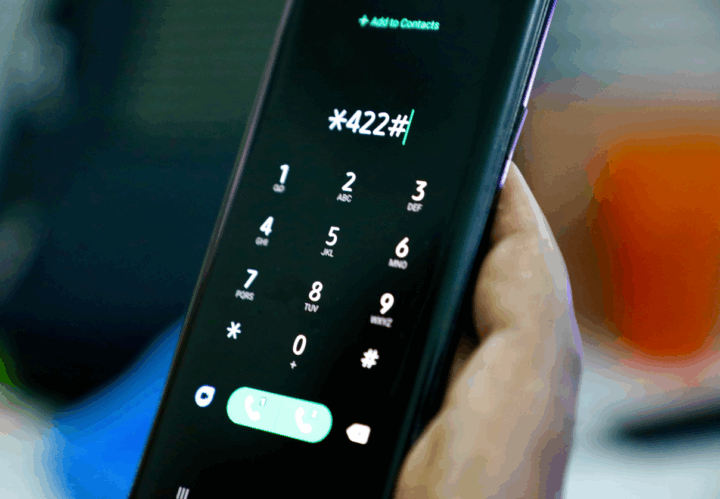Chinyere, a street-level entrepreneur in bustling Lagos, thought she could make a quick ₦5,000 transfer to her supplier using her bank’s USSD code. What she didn’t anticipate was a labyrinth of technical failure and financial loss. Her first attempt failed. She tried again. Again it failed. Then she checked her balance—and discovered that ₦13.96 was missing. At ₦6.98 per failed session, those unsuccessful attempts cost her money despite delivering nothing.
Sadly, Chinyere’s experience is not unique. Across Nigeria, many bank customers face mounting costs from failed USSD (Unstructured Supplementary Service Data) banking sessions. These charges are small per session, but they add up—especially for low-income Nigerians who rely on USSD for basic banking. With banks and telcos pointing fingers at each other, the ultimate loser is the consumer.
Financial Inclusion at Risk
Yusuf Adeyemo, National Vice President of the Association of Mobile Money and Bank Agents in Nigeria (AMMBAN), warns that this issue is threatening Nigeria’s efforts at financial inclusion.
“Many Nigerians still depend heavily on USSD for transactions,” Adeyemo notes, “but the experience of being debited without services delivered is discouraging usage.”
He adds that while ₦6.98 might seem trivial, repeated failures become “hidden costs.” A failed attempt to retrieve BVN or NIN, for instance, could still lead to a deduction—even without a transaction. He’s worried that it makes financial inclusion expensive and dissuades Nigerians from using banking tools.
“Affordability is at the core of financial inclusion,” Adeyemo says. “If it becomes unaffordable to use basic financial services, many will shy away from using bank accounts.”
Shift to End-User Billing: Telcos or Banks?
Since June 3, 2025, USSD charges no longer come off customers’ bank accounts. Instead, telcos now deduct them from your airtime under the End-User Billing (EUB) model—an initiative directed by the Nigerian Communications Commission (NCC).
Banks like UBA have notified customers of this change: “Charges for USSD banking services will no longer be deducted from your bank account… instead, from your airtime balance,” they explained, adding that each 120-second session costs ₦6.98, and users must give consent before airtime is deducted.
Proponents say this will boost transparency—making it clear what you’re being charged, how much, and giving you the chance to opt out.
Industry Crossfire and Debts
Yet, the transition hasn’t resolved the simmering tensions between banks and telcos. Telcos accuse banks of distorting the narrative, declaring that the EUB was not an NCC directive but a negotiated agreement with conditions—notably that banks must clear outstanding USSD debts before migration begins.
The crux? As of early 2025, telecoms say banks still owe them close to ₦250 billion over unpaid USSD charges. Regulators intervened, giving banks a structured deadline to settle the debt; only then could migration to EUB proceed.
Telcos threatened to withdraw USSD services entirely if banks played fast and loose with payment or misleading messaging continued.
Who Is the Real Culprit?
Telcos argue they’re simply providing the transport. “We deliver you to the bank’s infrastructure,” says Gbenga Adebayo, ALTON’s chairman, using an analogy about visiting an ATM that’s out of cash. Not their fault if it’s empty.
Banks counter that since the shift to EUB, they no longer control the charges—telcos do. “How can you blame banks for money they’re not collecting? Telcos deduct airtime directly,” says one anonymous bank source.
But Elvis Eromosele of TheNumbersNG argues the system itself is flawed—there’s no clear recourse for customers debited during failed sessions. He calls for airtime refunds on failed USSD attempts, tighter resolution channels, and greater regulatory oversight.
A Demand-Side Perspective
Bank customers are voicing frustration. The President of the Bank Customers Association of Nigeria (BCAN), Dr. Uju Ogubunka, blasted the new model as shifting costs unfairly to consumers already facing financial strain. “Banks make huge profits—why should they pass extra charges to customers?” she asks, urging CBN and the Bankers’ Committee to step in.
The Regulatory Landscape
Regulators like NCC and CBN intended EUB to resolve disputes and increase transparency. The NCC emphasizes the new process lets users choose whether to proceed with USSD, approves charges upfront, and avoids double billing.
Still, the NCC acknowledges that the transition requires technical integration and testing—a process still underway. Many banks and telcos are not yet fully set up, so implementation remains uneven.
From Chinyere to National Concern
Chinyere may have lost ₦14 in a few seconds, but that’s the tip of the iceberg. Around the country, everyday Nigerians—especially those without regular internet access or who rely on cashless systems—are bearing the fallout of a system misaligned with user protections.
Add to this the unresolved debt battle and operational glitches, and we have both a tech failure and a policy failure playing out on the public dime.
A Path Forward: What’s Next?
1. Refunds for Failed Sessions
Telcos should automatically refund airtime if a USSD session fails or ends prematurely—no questions asked.
2. Charge upon Success
Billing should be triggered only after successful completion of a transaction—not upon session initiation.
3. User-Friendly Dispute Platforms
Regulators must mandate banks and telcos to set up simple, time-bound dispute resolution channels users can easily access.
4. Consumer Education Drive
Mass awareness campaigns are needed to inform Nigerians how EUB works, the cost per session, and how to report faulty charges.
5. Debt Settlement as a Migration Precondition
EUB rollout should be conditional on banks clearing USSD debts. Allowing an incomplete migration undermines system trust.
6. Real-Time Transaction Alerts
Customers should receive immediate notifications for both successful and failed sessions—optionally with refund prompts for failures.
Conclusion: A Test for Inclusion and Fairness
What was supposed to be an evolution in digital banking has instead become a fault line revealing regulatory, institutional, and consumer protection gaps in Nigeria’s cashless economy.
For Chinyere and countless others, losses aren’t small—they’re preventable. The question now isn’t just who’s to blame—but when systems will be refashioned to serve, not frustrate, Nigeria’s digital wallets.




